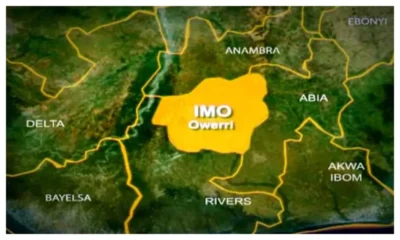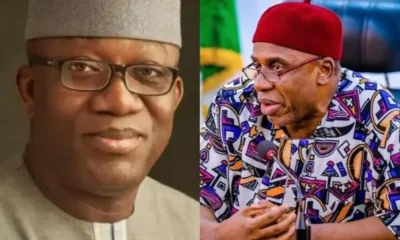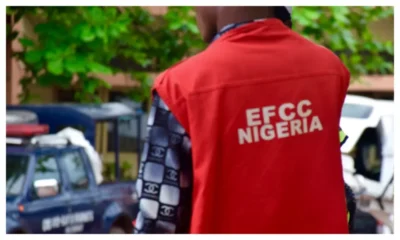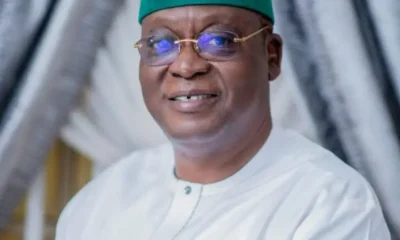Tech
Crypto: Binance confirms working with Tinubu govt to block dollar-naira exchange
“Users behaving in a manipulative way will be removed from the platform.’’
One of the World’s biggest cryptocurrency trading platform, Binance, has confirmed collaborating with President Bola Tinubu’s administration to block Nigerians from dollar-naira trade on its platform.
Binance disclosed this in an announcement on its “commitment to P2P users in Nigeria” on Tuesday, warning that “users behaving in a manipulative way will be removed from the platform.”
“As industry leaders,” Binance said, “We are working hand in hand with local authorities, lawmakers, and regulators to ensure we act on non-compliance.’’
The crypto exchange platform further said it is “setting an upper limit for ads, filtering and removing bad ads, requiring and raising deposits for merchants posting ads as well as processes for actioning against any market manipulators.”
On Tuesday, Binance disabled sell option for its Nigerian users, blocking them from selling fiat currency, USDT, on the platform. It also capped the buy option to $1802 for Nigerian users.
It also disabled purchase of cryptocurrencies via P2P for its Nigerian users, leaving those who might want to sell their crypto assets such as Bitcoin, BNB, Ethereum via P2P stuck.
This comes as another desperate move by the Tinubu-led government to stem naira freefall against the dollar. The naira continues to decline even after the Economic Financial Crimes Commission raided perceived currency speculators at a popular Abuja Bureau De Change hub on Monday.
Earlier on Tuesday, the National Security Adviser, Nuhu Ribadu, directed law enforcement agencies to take firm measures against anyone engaged in foreign exchange market speculation.
“In a concerted effort to safeguard Nigeria’s foreign exchange market and combat speculative activities, the Office of the National Security Adviser and the Central Bank of Nigeria are joining forces to address challenges impacting the nation’s economic stability,” a statement issued by Mr Ribadu’s office read.
It added, “The CBN’s proactive measures to stabilise the foreign exchange market and stimulate economic activities have been commendable. However, the effectiveness of these initiatives is being undermined by the activities of speculators, both domestic and international, operating through various channels, thereby exacerbating the depreciation of the Nigerian naira and contributing to inflation and economic instability.”
The naira hit its all time low, trading for N1902 to a dollar on Tuesday before Binance blocked its Nigerian user from selling USDT on the platform.
Mr Tinubu’s government collaborating with Binance to block Nigerians from dollar-naira trading mirrors his predecessor, former President Muhammadu Buhari’s ban on cryptocurrency trading in the country in 2021. The CBN under Mr Tinubu’s watch in December 2023 lifted the ban on cryptocurrency.
Some Nigerian Binance users have criticised Binance on its latest move, threatening to migrate to other platforms for their dollar-naira trading.
An x user, @MikaelBernard, on Tuesday, dismissed Binance’s decision against Nigerian users as “absolutely ridiculous,” adding that “If this is how they plan to save the naira, I’m sorry but it’s going to fail woefully.”
“You can no longer sell your own tokens for above 1802/$. I don’t know what they aim to achieve, but traders are now on telegram, selling at 1850/$ and above. Binance was only a medium. If you block Binance, people will find new ways,” @MikaelBernard tweeted.
Another X user, MiracleOkeke said, “So, let me understand, you literally decided to put a peg or control a somewhat person to person transaction that should normally be determined by whatever price they wish? As an open market? Jokes on you, we will move to other platforms.”
With “more than half of its adult population” trading cryptocurrency “monthly,” according Binance, Nigeria ranks among countries with the largest population of crypto traders in the world.
Recent restrictions on domiciliary accounts in Nigeria by the Tinubu-led government could have also increased the number of Nigerians using the exchange to save their money or facilitate receipt of funds from abroad.
Tech
Nigerian mobile network changes name

Nigerian telecom operator 9mobile formerly Etisalat has changed its name to T2.
The unveiling to a new brand identity was announced during a corporate event tagged Tech Meets Tenacity at Eko Hotels and Suites in Lagos.
The transformation also comes with a new orange colour scheme, replacing the company’s longtime green branding.
The Chief Executive Officer, Obafemi Banigbe, said the move was aimed at redefining the company’s position in Nigeria’s telecom market and competing more strongly in the industry.
The event was attended by key stakeholders, including the Minister of Communications and Digital Economy, Dr. Bosun Tijani, and featured musical performances, with entertainment personality Darey Art Alade as host.
The rebrand marks another chapter in the company’s history.
Originally launched as Etisalat Nigeria, the firm once had over 22 million subscribers before financial challenges and loss of investors reduced its active users to 3.2 million by January 2025.
In recent months, it signed a national roaming agreement with MTN Nigeria to improve coverage and service quality.
The shift from 9mobile to T2 is part of a broader plan to stabilise operations, attract more customers, and remain competitive in Nigeria’s fast-changing telecommunications sector.
Tech
BREAKING: MTN and Airtel Nigerian network subscribers spent a total of N2.53 trillion on voice and data services in the first half of 2025

Subscribers on MTN and Airtel networks spent a total of N2.53tn on voice and data services in the first half of 2025, representing a 50.9 per cent increase from the N1.68tn recorded in the corresponding period of 2024.
This is according to an analysis of the half-year 2025 results released by both telcos.
The figure reflects rising consumer spending on telecommunications, driven by tariff reviews, increased smartphone penetration and sustained network investment by the two largest mobile network operators in Nigeria.
MTN Nigeria generated N2.12tn in voice and data revenue between January and June 2025, marking a 55.7 per cent increase from the N1.36tn recorded in H1 2024.
The telco’s data revenue surged by 69.2 per cent to N1.23tn, up from N727.33bn in the same period last year.
Voice revenue also grew by 40.3 per cent year-on-year to reach N887.13bn, compared to N632.38bn previously.
The company attributed the performance to robust demand, price adjustments implemented largely in the second quarter, and continued growth in its active data user base.
MTN reported an 11.8 per cent increase in active data subscribers to 51 million, while total mobile subscribers rose by 6.7 per cent to 84.7 million.
Average data consumption per subscriber increased by 26.3 per cent to 13.2 gigabytes, supported by smartphone penetration of 62.6 per cent and a 41.2 per cent rise in data traffic.
The telco also executed a price review across voice and data plans during the period, which boosted service revenue.
The strong topline performance helped MTN swing from a loss of N519.1bn in H1 2024 to a profit after tax of N414.9bn in H1 2025.
Earnings before interest, tax, depreciation and amortisation more than doubled, rising by 119.5 per cent to N1.2tn, with the EBITDA margin improving to 50.6 per cent.
The company has since revised its full-year guidance, forecasting service revenue and EBITDA margin growth of at least 50 per cent.
Airtel Nigeria, meanwhile, recorded a total of $298 million in data and voice revenue during the same six-month period.
Using the exchange rate of N1,384/$ adopted by the company, this amounts to N412.43bn—an increase of 30.1 per cent over the N316.94bn reported in H1 2024.
Airtel’s data revenue grew by 40.2 per cent year-on-year, rising from $117 million (N161.93bn) to $164 million (N226.98bn), while voice revenue rose by 19.1 per cent from $112 million (N155.01bn) to $134 million (N185.46bn).
The growth was underpinned by an 11.3 per cent rise in Airtel Nigeria’s data subscriber base to 29.3 million and a 46.8 per cent increase in data average revenue per user.
Data usage per subscriber climbed to 9.3GB monthly, up from 7.3GB in the previous year, while smartphone penetration rose to 51.4 per cent.
The company’s overall customer base grew by 6.3 per cent to 53.6 million by June 2025 in Nigeria.
Airtel Nigeria’s EBITDA rose by 49.9 per cent year-on-year to $185 million, and its EBITDA margin expanded to 55.7 per cent, supported by strong topline performance and the continuation of its cost efficiency strategy.
Although the company was impacted by currency devaluation in the previous year, its financial position improved in 2025, with increased profitability and stronger operating cash flows.
Both MTN and Airtel noted that macroeconomic conditions had become more stable during the first half of the year.
The Central Bank of Nigeria maintained the monetary policy rate at 27.5 per cent, helping to moderate inflation to 22.2 per cent by June 2025.
The naira also held steady around N1,530 to the US dollar, providing a more favourable environment for financial planning and capital investment.
In his commentary on the H1 result, the CEO of MTN Nigeria, Karl Toriola, said “We maintained strong commercial momentum in H1 2025 through disciplined execution, targeted customer engagement and network investments.
“Our mobile subscribers rose to 84.7 million, with a net addition of 3.8 million in H1; despite the impact of the new SIM registration regulations introduced in Q1. As we increase our effort to add more strategic agents, we anticipate an easing of this headwind as we move forward. Active data users rose by 3.3 million in H1 to approximately 51 million, driving a 41.2 per cent YoY increase in data traffic.
“During the period, we completed the phased implementation of the new price adjustments across voice and data bundles, largely benefiting Q2. Pleasingly, the demand for our services remained resilient, which supported strong service revenue growth in the period.”
MTN said it had launched the first phase of its Dabengwa Tier III Data Centre and was onboarding mobile virtual network operators to its infrastructure, in line with the NCC’s efforts to deepen competition and improve nationwide connectivity.
Toriola noted, “As part of our strategy to expand capacity and meet the growing demand for our services, we launched the first phase of our US$240 million Dabengwa Tier 3 Data Centre in July 2025. This multi-stage data centre project is a world-class facility that will become the largest of its kind in West Africa. It will deliver industry-leading standards of scalability, reliability and security. It will enable businesses to digitise operations, drive innovation and scale efficiently.”
Airtel also highlighted its partnership with SpaceX to deliver Starlink’s high-speed satellite broadband services to remote communities across Africa, including Nigeria.
It noted, “On 5 May 2025, the Company announced an agreement with SpaceX to bring Starlink’s high-speed internet services to its customers in Africa.
“With this collaboration, Airtel Africa will further enhance its next generation satellite connectivity offerings and augment connectivity for enterprises, businesses and socio-economic communities like school, health centres etc in most rural parts of Africa.
“Currently, SpaceX has acquired the necessary licences in nine out of 14 countries within Airtel Africa’s footprint and operating licences for the other five countries are under process.”
The combined N2.53tn spent on telecom services in just six months highlights the critical role played by voice and data connectivity in Nigeria’s economy.
With expanding networks, increasing demand for digital content, and deeper smartphone adoption, telecoms are poised to remain one of the fastest-growing sectors in the country’s post-pandemic recovery.
Tech
‘Sorry’ – Elon Musk apologies, addresses Starlink satellite global outage
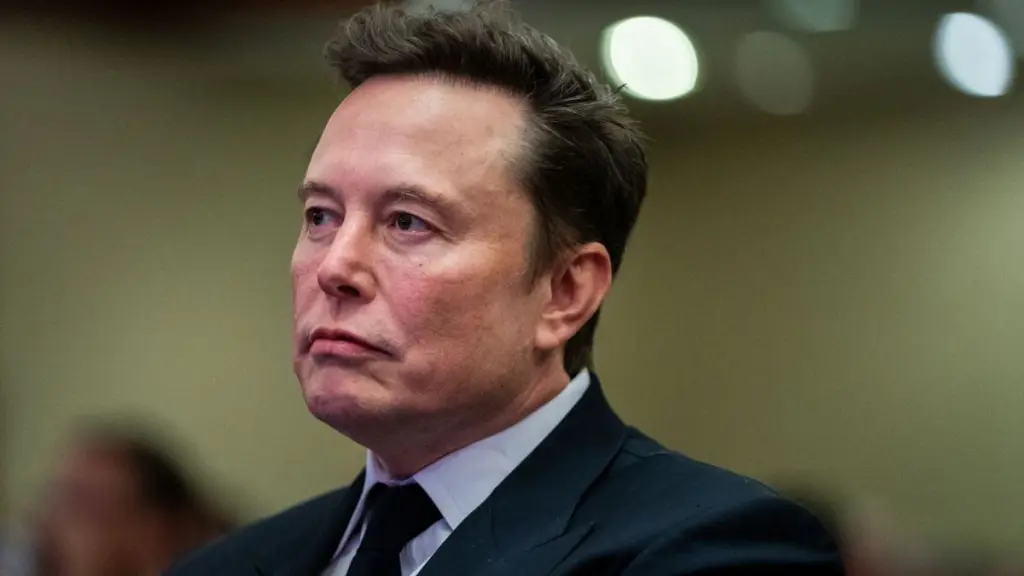
United States of America tech billionaire Elon Musk has apologised after his firm, SpaceX Starlink, a satellite internet provider, suffered a 2.5-hour disruption of high-speed internet service globally on Thursday night.
Musk, in a post via his X account, said he was “sorry” as he addressed the issue.
Recall that SpaceX’s Starlink satellite internet suffered one of its biggest international outages, knocking tens of thousands of users offline.
This came as a result of a failure of internal software services.
Reacting, Musk promised that SpaceX will resolve the root cause and make sure it doesn’t happen again in the future.
“Sorry for the outage. SpaceX will remedy root cause to ensure it doesn’t happen again,” Musk wrote.
SpaceX has launched more than 8,000 Starlink satellites since 2020.
In Nigeria, Starlink officially resumed activations for customers nationwide last month.
According to the US firm, high-demand customers in Lagos and Abuja, among other cities, are at the forefront of its revival.
Recall that between October and November last year, Starlink temporarily paused activations of new customers over regulatory approvals.
This followed the internet company, with over 60,000 subscribers, arbitrarily increasing its subscription prices without the Nigerian Communications Commission’s approval in October 2024.
-

 Politics10 months ago
Politics10 months agoMexico’s new president causes concern just weeks before the US elections
-
Business10 months ago
US court acquits Air Peace boss, slams Mayfield $4000 fine
-

 Trending10 months ago
Trending10 months agoNYA demands release of ‘abducted’ Imo chairman, preaches good governance
-
Entertainment10 months ago
Bobrisky falls ill in police custody, rushed to hospital
-
Entertainment10 months ago
Bobrisky transferred from Immigration to FCID, spends night behind bars
-

 Politics10 months ago
Politics10 months agoRussia bans imports of agro-products from Kazakhstan after refusal to join BRICS
-

 Politics10 months ago
Politics10 months agoPutin invites 20 world leaders
-
Education12 months ago
GOVERNOR FUBARA APPOINTS COUNCIL MEMBERS FOR KEN SARO-WIWA POLYTECHNIC BORI

